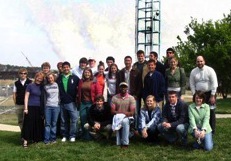“World on the Edge” Philosophy/Physics Learning Community
In Spring 2006, 2008, 2010, and 2012 I joined Prof. Zides in teaching this course which explores philosophical questions that arise as we study science relating to potential cataclysmic or apocalyptic events. Some of this science is within humanity’s control, such as overpopulation, pollution, dangerous scientific experimentation; and some we have little control over, such as the possibility of an alien invasion or deadly comets. As we study the science behind these phenomena, the related philosophical issues include individual responsibility, human nature, sustainable living, environmental awareness, and how to find hope and meaning in one’s own life even in the face of potential world disaster. This picture is from our field trip to a nuclear power plant.
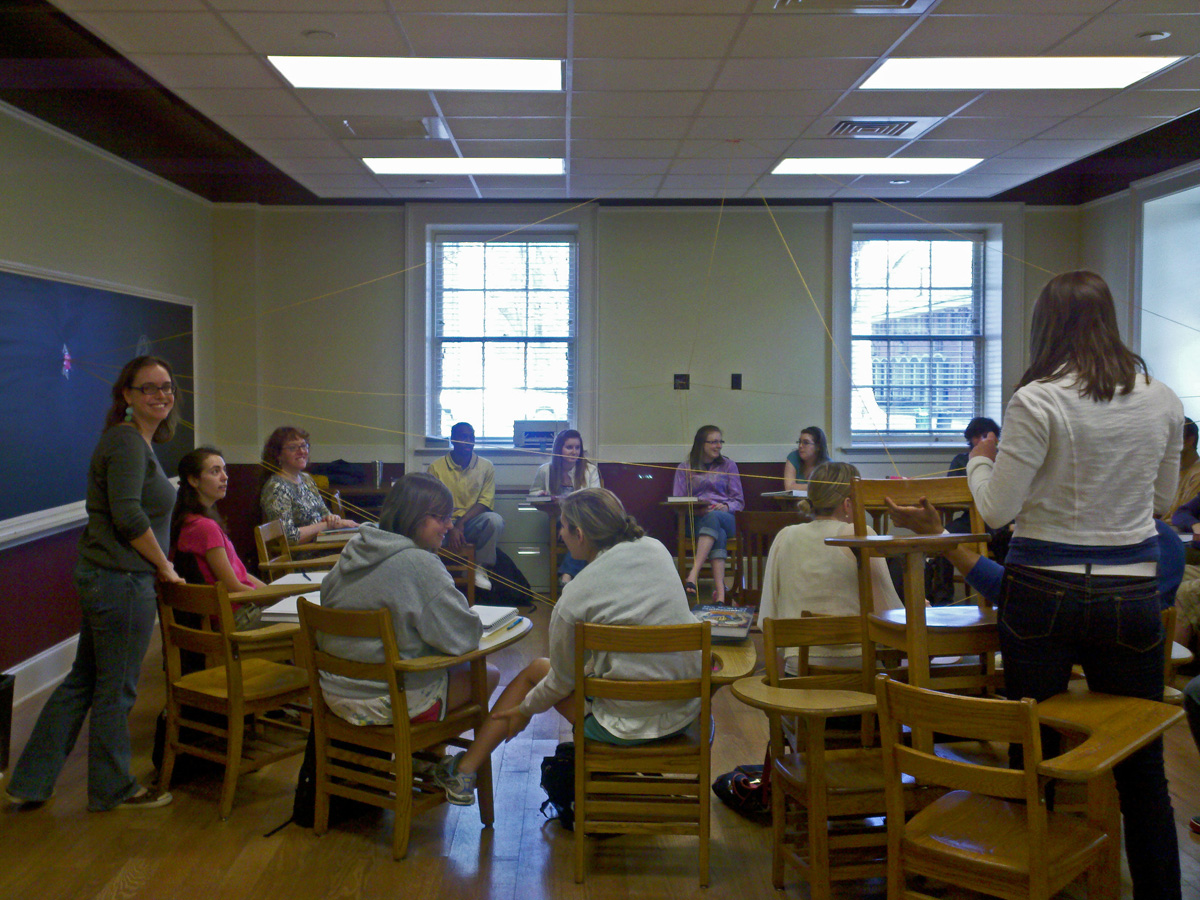 “Reality Bits and Bytes” Philosophy/Mathematics Learning Community
“Reality Bits and Bytes” Philosophy/Mathematics Learning Community
What is the nature of reality? When we study our world, do we discover what’s out there, or do we construct and create it through our study? Can we truly represent what’s around us? Is the world deterministic? Is it in flux? In this learning community, Dr. Catllá and I explore with our students these and other questions about the nature of reality. We study math and philosophy from ancient times to the present, focusing on topics such as chaos theory, game theory, existentialism, pragmatism, process-relational philosophy, and paradoxes. In this picture, the students have created an octahedron across the entire classroom – a Platonic solid made of yarn!
“So You Think You’re a Human?” Philosophy/Humanities Learning Community
Why do we humans think it is so important to distinguish ourselves from other beings? What are humans and why are we so special? This learning community, which I teach with Dr. Chalmers, challenges students to question where human boundaries lie – between self and others, humans and animals, and, looking to the future, between humans and robots. We read short stories, a novel, and philosophical essays, watch a film, and take a field trip to the zoo.
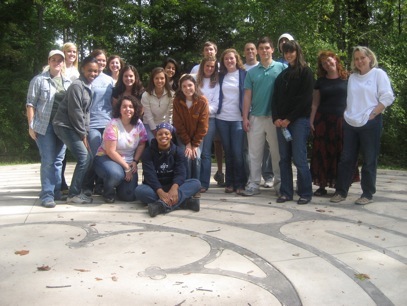 “Identity” Philosophy/Religion Learning Community
“Identity” Philosophy/Religion Learning Community
Dr. Katherine Jones and I teach this learning community together. In the philosophy portion of the course, we focus on how one forms or maintains a personal identity, exploring questions such as: What is the nature of the self? How does an individual find meaning in life? Can such meaning be found, or must it be created? What is the role of an individual within a community? How can a community help define personal identity? Readings include Plato, Aristotle, Descartes, and Nietzsche. We also join in occasional lunch-time film discussions on these issues, and take occasional field trips, like walking and meditating in a labyrinth, pictured here.
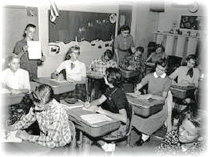 “Loving the Bomb: The American Cold War in Literature and Philosophy”
“Loving the Bomb: The American Cold War in Literature and Philosophy”
The Cold War dominated the political, cultural, and philosophical landscape of much of the twentieth century. In this learning community, which I taught with Dr. Jim Neighbors in 2007, we explored some of the ways that the Cold War affected life in the United States. The effects were widespread: Everything from the “Red Scare” to the Ford Mustang to building bomb shelters in the suburbs came from Cold War attitudes and ideas. We explored such big Cold War themes as the concept of the self, personal freedom, and the individual’s relationship with the State by discussing novels, philosophical treatises, dramatic works, poems, films, television, music, comic books, and formerly-classified government documents.
Problems of Philosophy
I teach one or two sections of Problems of Philosophy almost every semester. Often, one of these sections is limited to first-year students. In this course, students study the texts of major philosophers and learn about their ideas through discussion and a variety of written assignments and projects. Recent offerings of the course have included a mix of Plato, Aristotle, Anselm, Descartes, Kant, Nietzsche, Whitehead, Stein, Arendt, and Heidegger.
Philosophy through Literature
I teach one section of this course approximately once every four semesters. The course features discussion and analysis of classical and contemporary philosophical issues as they are presented in selected works of literature, with attention to the question of how philosophical ideas are conveyed through this alternative medium. Topics include: political philosophy; responsibility, free will, and determinism; the nature and purpose of humanity; and the meaning of life. Recent texts used in the course include Pynchon’s The Crying of Lot 49, Pirsig’s Zen and the Art of Motorcycle Maintenance, Beckett’s Endgame, Gilman’s Herland, Melville’s “Bartleby, the Scrivener,” and Morrison’s We 3.
Ancient Western Philosophy
I teach a section of this course once every three semesters. It’s an exploration of ancient Western philosophical thought. Topics include the nature, purpose, and best life of persons; justice; the nature and order of the physical world; and the nature of truth. Emphasis is on discussion of primary texts drawn from pre‐Socratic fragments and from the works of Plato, Aristotle, and select Hellenistic and Roman philosophers. Students in this class learn to practice Socratic questioning, and each student is required to write a Socratic dialogue.
Phenomenology
An exploration of the phenomenological movement in philosophy focused on thinkers such as Husserl, Heidegger, Arendt, Merleau-Ponty, and Gadamer. The course examines core ideas of phenomenology such as intentionality, embodiment, the life-world, the critique of theoretical knowing, and the subjectivity of consciousness. Selected poetry and short films may be used to supplement the main philosophical texts.
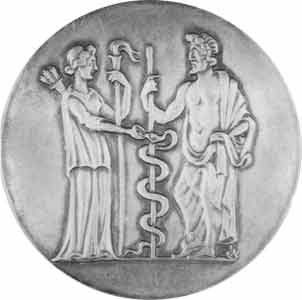 Philosophy of Medicine
Philosophy of Medicine
In this course, we explore the goals and nature of healthcare and the role of health of body and mind in human experience. We examine medicine’s fundamental concepts and values such as the nature of health and disease, the phenomenology of illness, and the roles of individual autonomy and communal interest in healthcare. Readings include Eastern and Western ideas from philosophy, medicine, sociology, literature, and gender studies.

